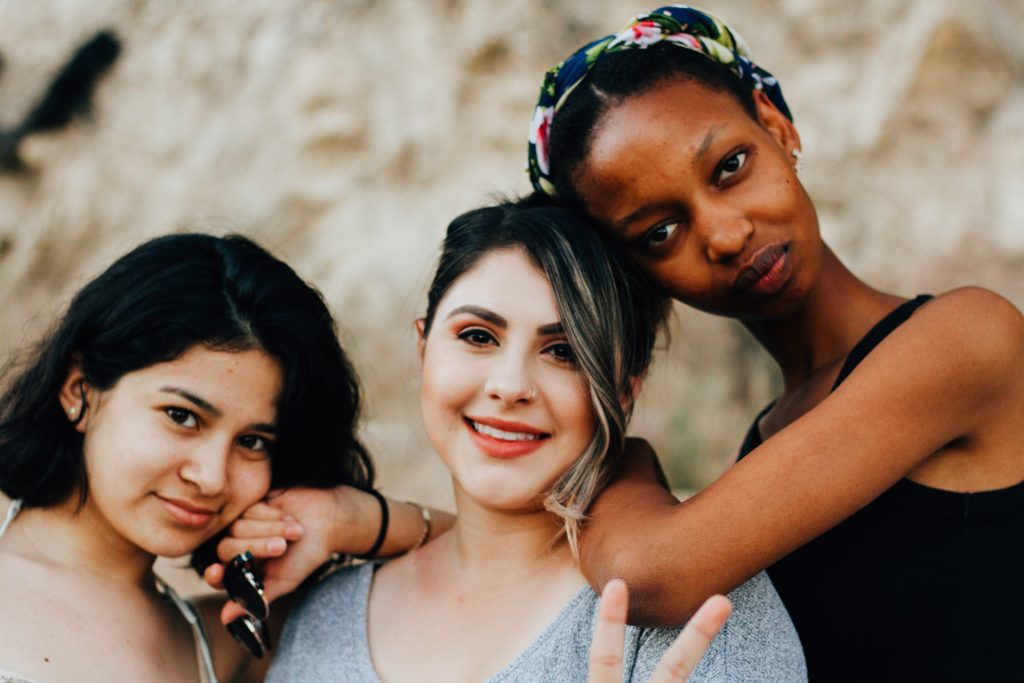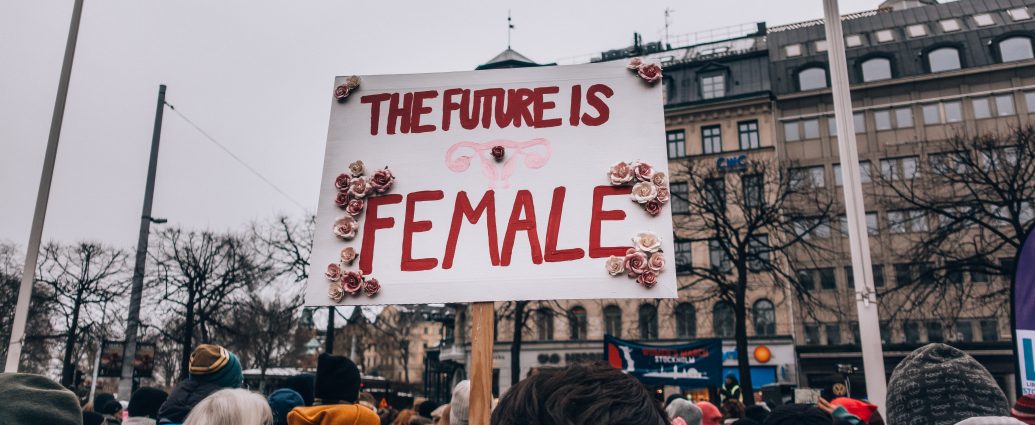Feminism is built on the fundamental idea that there should be equality between the sexes. Whether that be in economic, social or political life, feminism has always been evolving, and it is on the way to dismantling itself from its predominately white, middle-class heritage. However, as a movement, it can still do better.
Reni Eddo-Lodge, journalist and writer, argued in ‘Why I’m No Longer Talking to White People About Race‘, that “Feminism will have won when we have ended poverty”. This highlights feminism’s significant failings within taking all forms of inequality seriously but also alludes to broader structural failures within society that prevent it from fulfilling its aims.
Eddo-Lodge puts forward a radical version of intersectional feminism and believes there should be more of an effort to listen to all kinds of feminists. Feminism should not be just a gender-based approach, despite this being one of its central aims, but work harder to acknowledge all forms of discrimination that impact women.
Fourth wave feminism has largely been built on social media to carry the movement forward, and platforms such as Instagram and Twitter have played a significant role in projecting the movement into the modern age. Through the use of hashtags such as, ‘#YesAllWomen,’ the movement has been able to captivate the attention of the online world. However, although it is a vital tool in sharing stories and experiences, it can sometimes distract from the other fights that feminism still has to win.
“This promised seismic change; however, must centre on championing a type of feminism that is intersectional through and through.”
To achieve true equality and win the battle that feminism is still fighting, we must break down the barriers that allow poverty to persist. The capitalist system that has entrenched our day to day norms naturally harbours inequalities in many forms. It’s not fit for purpose – and certainly not for women. Understandably, this isn’t going to be eradicated overnight, but it should be a priority. With capitalism in place, the wealthiest one per cent is only going to get wealthier.
In what is set to be a long haul pandemic, Covid-19 has already shown us that women, particularly BIPOC women are more likely to be affected by the crisis. Commentators have stated this pandemic may make the world a better place in its wake. This promised seismic change; however, must centre on championing a type of feminism that is intersectional through and through.
Intersectionality by definition is about acknowledging all forms of discrimination and placed within a feminist structure, means extending the movement to be more inclusive of women who come from lower socio-economic backgrounds and who are part of the BIPOC community. Feminism placed within its traditional frameworks is not enough on its own, as white feminism does not see combating racial inequality as an equal priority to securing gender rights (Reni Eddo-Lodge).
“Women are, therefore, more likely to have lost jobs or been furloughed due to the pandemic”
When I say feminism is not enough on its own, I mean this in the sense that aligning ourselves predominately with its historical origins is not suitable for the modern-day. Feminism as a movement has historically excluded women of colour and has not done enough to include fighting inequality of every distinction, not just gender, but class and race.
This matters now more than ever due to the Covid-19 pandemic, which has the potential to reverse progress made for women, from all over the world. The International Monetary Fund warned that women are more likely than men to work in social sectors (e.g., retail, tourism and hospitality) that required more face-to-face interactions, which have been hit the hardest from social distancing measures. Women are, therefore, more likely to have lost jobs or been furloughed due to the pandemic which has had substantial economic ramifications.

Not only this, the first academic study into the impact of Covid-19, conducted by University College London, concluded that women in the UK, spent more time than men on homeschooling during lockdown because their line of work typically used the furloughing scheme, allowing them to stay at home. The pandemic has highlighted how easy it is to reverse these structural changes that feminism has worked so hard to combat, and intersectional feminism must pave the way for preventing this progress from being reversed.
The crisis is far from over. Black women are twice as likely as white men to have been furloughed during the pandemic. Women of colour are on the whole, more likely to be laid off during the pandemic.
The full implications of the current crisis are far from being known yet; however, what we already know is enough. It is imperative that feminism takes the direction of intersectionality now more than ever. Covid-19 has disproportionately impacted BIPOC women, and we need an intersectional mindset to disentangle the vast inequalities that still plague every sector of society across the world.
When Covid-19 is eventually over, we’re all going to need to be intersectional feminists. We are already seeing a revival in the gender pay gap that women fought so hard to resist. Furthermore, there has been a return to gendered roles and responsibilities across the board. The World Economic Forum recently reported that we would not achieve gender parity for another 257 years, and that was before economies were devastated by the pandemic.

Additionally, the crisis has magnified how society is still drastically stratified by racial inequality. A US survey, Lean In, found that Black and Latino women are more likely than their white counterparts to be essential workers, meaning their exposure to Covid-19 is even greater. And compared to white women, they were spending an average of between 4-12 more hours per week on childcare.
These inequalities are persisting, and intersectional feminism drastically needs to reduce the gap. Feminism on its own is not strong enough to reverse the change that the pandemic is set on reversing, we all have to champion our efforts into strengthening a movement that is intersectional by nature and in action.
If feminism can understand the patriarchy, it’s important to question why so many feminists struggle to understand whiteness as a political structure in the very same way.
Violet Daniels
Tweet to @vdaniels_
Featured image courtesy of @travelpen via Unsplash.

